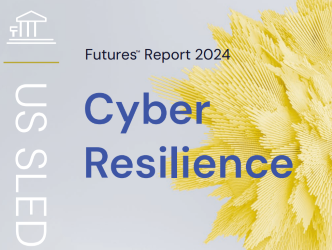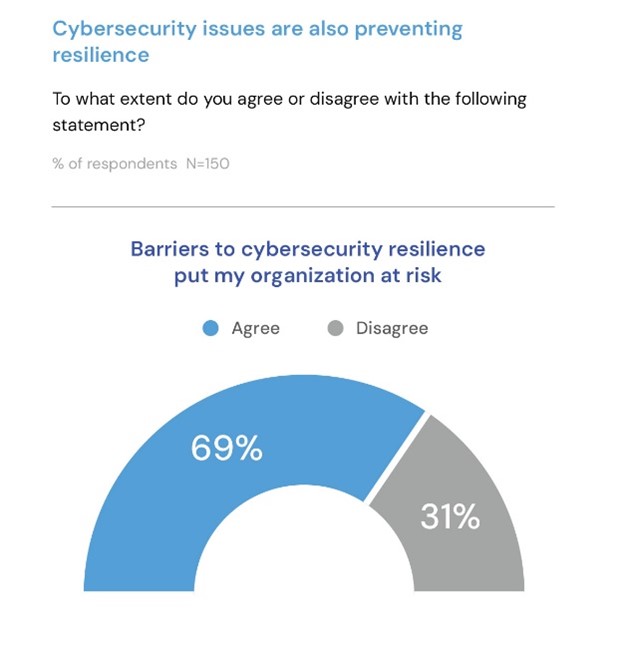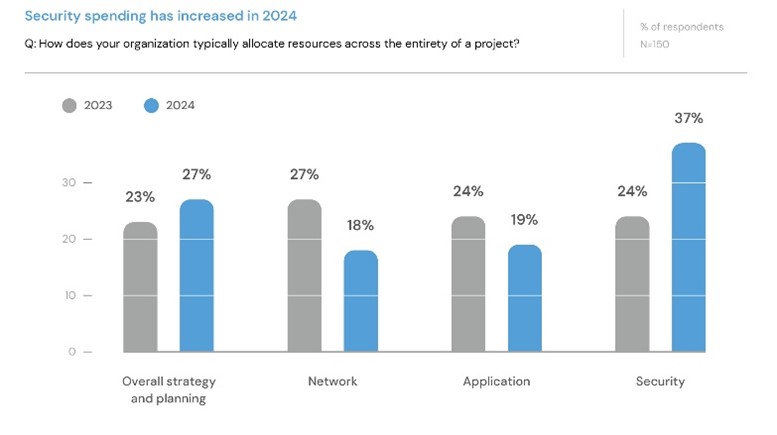Enhancing Cyber Resilience in US SLED Organizations
by nlqip

2024 Cyber Resilience Research Unveils US SLED Sector Challenges
New data illuminates how US SLED leaders can prioritize resilience.
US SLED (State, Local, and Higher Education) organizations find themselves at the intersection of progress and peril in the rapidly evolving digital landscape. The latest data underscores that the trade-offs are significant and pose substantial risks to US SLED providers.
One of the foremost obstacles is the disconnect between senior executives and cybersecurity priorities. Despite recognizing cyber resilience as a crucial imperative, many US SLED organizations struggle to secure the support and resources from top leadership. This lack of engagement hinders progress and leaves institutions vulnerable to potential breaches.
Meanwhile, technology continues to advance astonishingly, as do the risks posed by cyber threats. The 2024 LevelBlue Futures™ Report reveals this delicate balancing act between innovation and security within the US SLED sector. Our comprehensive analysis identifies opportunities for deeper alignment between executive leadership and technical teams.
The Elusive Quest for Cyber Resilience in US SLED

Imagine a world where US SLED organizations are impervious to cyber threats—where every aspect of an operation is fortified against disruptions. This is the lofty ideal of cyber resilience, yet it remains an elusive goal for many US SLED providers. The rapid evolution of computing has transformed the IT landscape, blurring the lines between legacy systems, cloud computing, and digital transformation initiatives. While these advancements bring undeniable benefits, they also introduce unprecedented risks.
Our research indicates that 86% of US SLED respondents agree that dynamic computing increases their risk exposure. In a world where cybercriminals are becoming increasingly sophisticated, the need for cyber resilience has never been more urgent. From ransomware attacks to crippling DDoS incidents, US SLED organizations operate in a climate where a single breach can have catastrophic consequences.

Exploring the Relationship Between Leadership and Cyber Resilience
Our survey of 1,050 C-suite and senior executives, including 197 from the finance sector across 18 countries, highlights the pressing need for cyber resilience. The report is designed to foster thoughtful discussions about vulnerabilities and improvement opportunities.
In the report, you’ll:
- Discover why US SLED leaders and tech teams must prioritize cyber resilience.
- Learn about the critical barriers to achieving cyber resilience.
- Uncover the importance of business context and operational issues in prioritizing resilience.
Recognizing the Imperative of Cyber Resilience
US SLED leaders are called to chart a course toward greater security and preparedness. Reacting to cyber threats as they arise is no longer enough; organizations must proactively bolster their defenses and cultivate a culture of resilience from within.
Our research delves into the multifaceted challenges facing US SLED organizations in their quest for cyber resilience. From limited visibility into IT estates to the complexity of integrating new technologies with legacy systems, US SLED providers grapple with deep-seated barriers that hinder their ability to withstand cyber threats.
Source link
lol
2024 Cyber Resilience Research Unveils US SLED Sector Challenges New data illuminates how US SLED leaders can prioritize resilience. US SLED (State, Local, and Higher Education) organizations find themselves at the intersection of progress and peril in the rapidly evolving digital landscape. The latest data underscores that the trade-offs are significant and pose substantial risks…
Recent Posts
- Seven Trends to Watch for in 2025
- Multiple Vulnerabilities in Ivanti Products Could Allow for Remote Code Execution
- Ivanti Releases Security Updates for Connect Secure, Policy Secure, and ZTA Gateways | CISA
- CISA Adds One Vulnerability to the KEV Catalog | CISA
- CVE-2025-0282: Ivanti Connect Secure Zero-Day Vulnerability Exploited In The Wild
